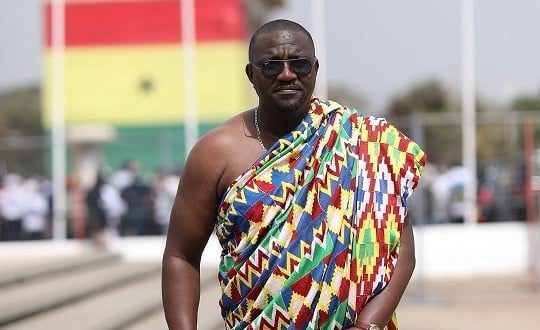John Dumelo, a prominent Ghanaian actor and newly elected Member of Parliament, has sparked debate within the creative arts sector by challenging the prevailing notion that the Minister of Tourism, Arts, and Culture should exclusively be drawn from within the industry’s ranks. Dumelo argues that the critical qualification for this ministerial position isn’t creative industry membership, but rather a strong vision for its advancement and a commitment to advocating for its stakeholders. He emphasizes the importance of appointing someone who understands the sector’s policies and can effectively represent its ideals and goals. Dumelo believes that President John Mahama, recently inaugurated for his second term, should have the autonomy to select the most suitable candidate based on these criteria, rather than being pressured by sectoral demands.
Dumelo’s stance contrasts with a long-standing advocacy within the creative arts sector for greater representation in government, particularly in the Ministry of Tourism, Arts, and Culture. The establishment of this ministry in 2013 by then-President Mahama, consolidating previously dispersed responsibilities for tourism, arts, and culture, was itself a response to stakeholders’ calls for a more focused and dedicated governmental approach. This advocacy gained further traction during Mahama’s first term (2012-2016) with the appointment of veteran actress and MP, Abla Dzifa Gomashie, as a deputy minister.
The push for industry representation continued after the New Patriotic Party (NPP) assumed power in 2016. Despite prominent creatives like Socrate Safo and Kojo Antwi being considered, the NPP ultimately appointed individuals from outside the sector, including Catherine Afeku and later Barbara Oteng Gyasi as ministers, with Mark Okraku Mantey, a music producer, serving as deputy minister. Okraku Mantey’s eight-year tenure as deputy minister, however, generated criticism from some within the industry who felt his position lacked sufficient authority to enact significant change.
The NPP’s subsequent appointment of Dr. Ibrahim Mohammed Awal and later Agyapa Mercer as ministers further fueled the debate, highlighting the recurring tension between appointing individuals with industry expertise versus those with broader administrative experience. With the return of the NDC to power and the election of both Dumelo and Gomashie to Parliament, the call for creative industry representation at the ministerial level has been reignited.
Dumelo acknowledges and respects the perspective of his colleagues within the creative sector but maintains that leadership in the Ministry of Tourism, Arts, and Culture requires more than just industry affiliation. He underscores the importance of vision, strategic understanding, and the ability to effectively represent the sector’s interests within the government. While acknowledging the expectations placed upon him as a creative, Dumelo affirms his commitment to the NDC’s manifesto and its proposed policies for the industry.
Dumelo’s argument essentially reframes the discussion around ministerial appointments, shifting the focus from mere representation to effective leadership. He posits that a deep understanding of the sector’s needs and the ability to navigate the complexities of government are paramount, regardless of whether the minister comes from within the creative industry itself. He trusts President Mahama’s judgment to appoint the most qualified individual to spearhead the growth and development of the creative arts sector. This perspective adds another layer to the ongoing debate about representation versus expertise in ministerial appointments, emphasizing the need for a leader who can effectively translate industry needs into tangible policy and progress. Dumelo’s stance encourages a broader consideration of the qualities required for successful leadership in this crucial ministry.














